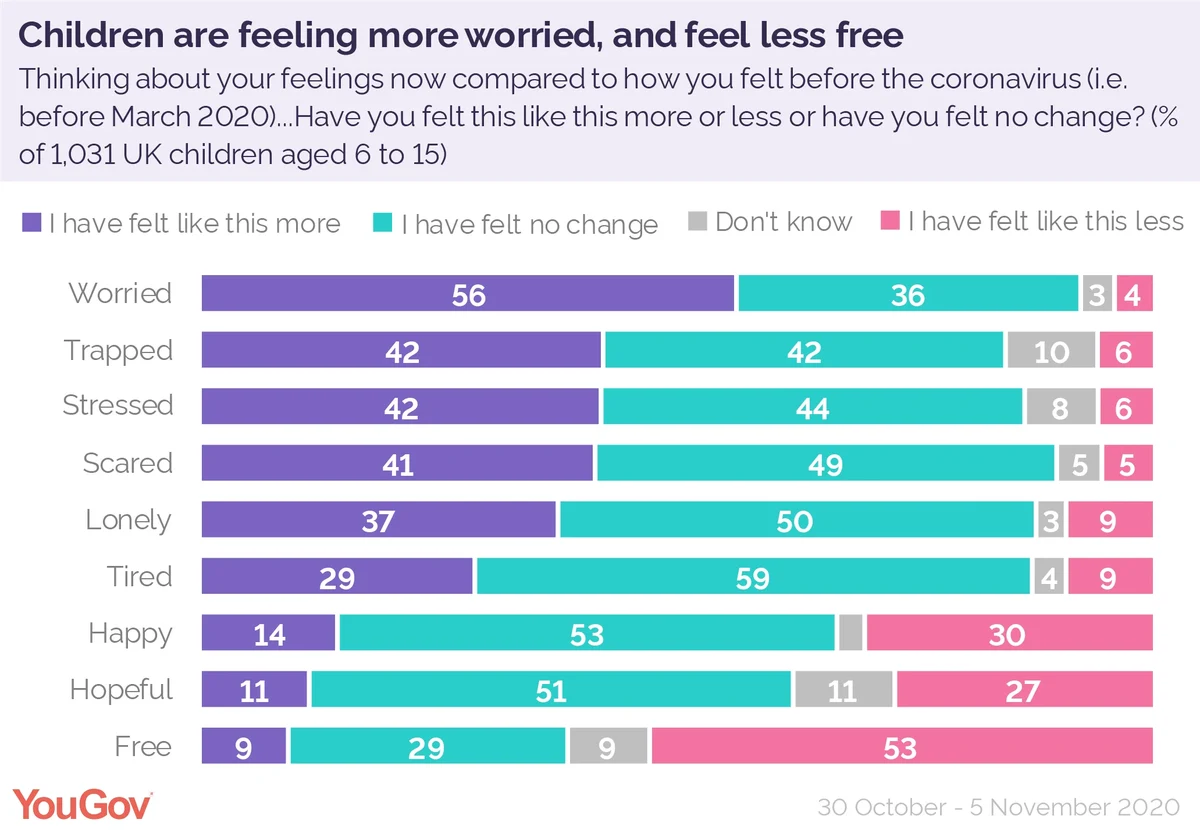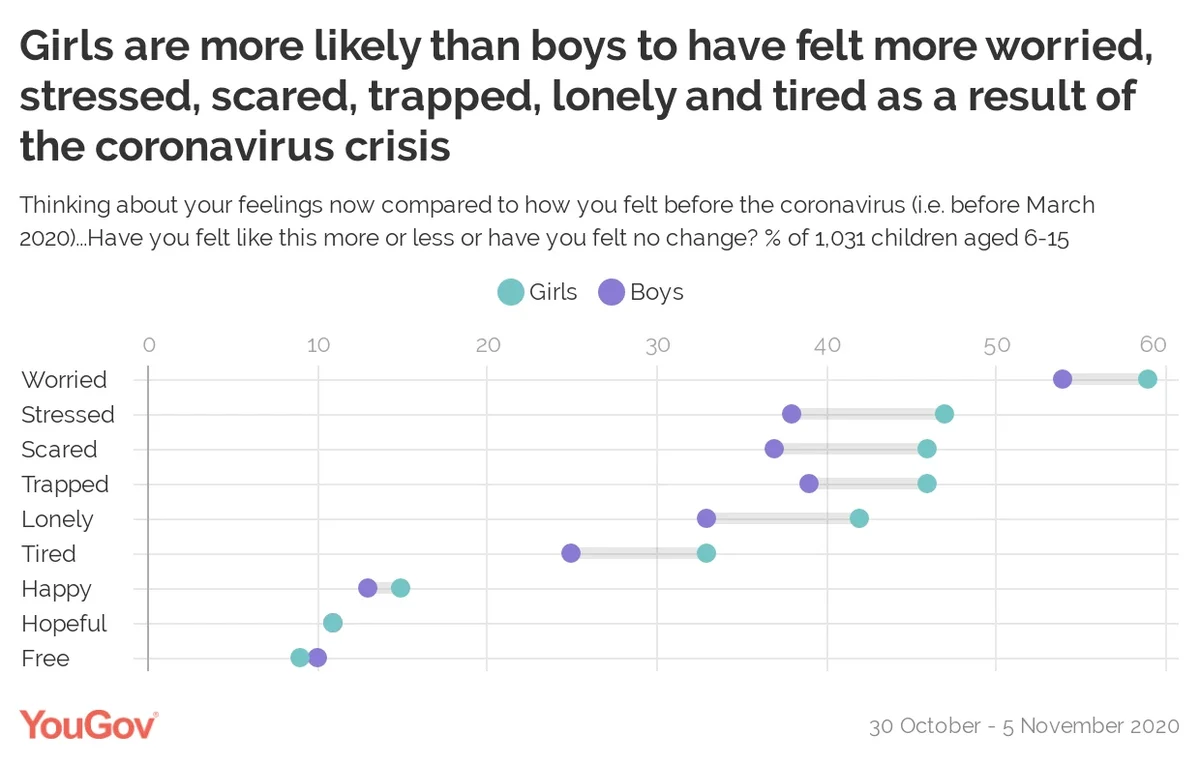Two in five children reported feeling lonelier as a result of the COVID-19 pandemic
Over the past ten months, concerns have been raised about how lockdown and social distancing might impact the most vulnerable, including how sudden changes to our way of life would affect the youngest in society. Now a YouGov Children’s Omnibus survey of 1,013 UK children between the ages of 6 and 15 shows how the COVID-19 pandemic has affected children across the UK during 2020.
Children are feeling more worried as a result of the pandemic
Broadly speaking, this research shows an increase in negative emotions, at the same time as a decrease in positive feelings. Over half (56%) of children reported feeling more worried compared to how they were before March this year, while 36% felt no change, and only 4% said they are worrying less.
More than four in ten (42%) said they have felt more trapped since March last year, the same proportion (42%) that reported feeling more stressed. Just 6% of young people said they have felt these emotions less during this year. A further two in five (41%) felt more scared than they used to, with only 5% reporting feeling this way less than previously.

Just over a third (37%) of children said they have felt lonelier since March, while half (50%) said this feeling didn't change, and 9% feel less lonely than they used too.

Girls (42%) were also more likely than boys (33%) to have said they have felt lonelier than they normally do, and this gender split is reflected in all of the other negative emotions YouGov asked about. For example, girls are also more likely to have felt scared (46% versus 37%) and stressed (47% versus 38%) compared to boys.









